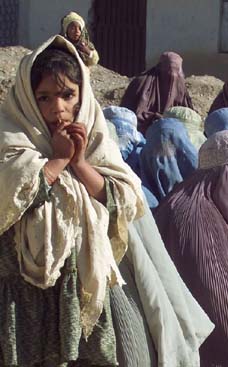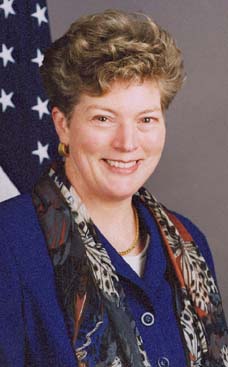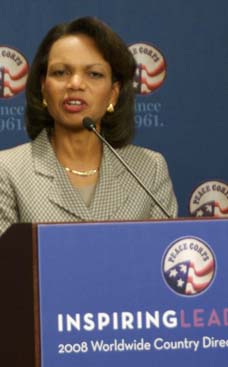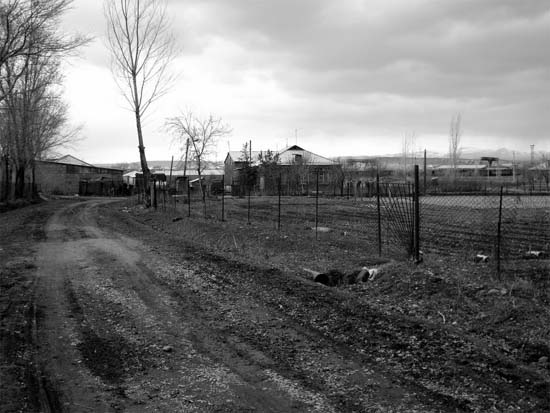
What has living in an Armenian village taught me? How will it influence the rest of my life? Rural living has taught me much. It has taught me the simple things like how to till a garden and herd cows. It has taught me that life is not always easy and convenient—running out to the outhouse at six in the morning in the bitter cold is not fun at all. But most importantly, the village has taught me the importance of history and why it should always be remembered. History influences our lives and helps us to understand our past. It directs out future. It helps us understand who we are and where we are going. Thoughts on the Armenian genocide often race through my head. I am like a shadow on Ararat, always struggling to find the truths of history, to understand why Turkey will not admit to the atrocities that occurred almost a century ago. But most of all, I am searching for reconciliation so that the slaughter of innocents may never happen again. The Turkish government needs to put a ceasefire to their fiery rhetoric. They need to understand the crimes that their predecessors committed so long ago. Armenians need to heal their emotional past and start looking for a brighter future. They need to decide where they are going. In short, Turkey and Armenia need to find reconciliation. They need to become friends. Like the Armenians, I will never forget the genocide. Maybe one day everyone else will remember, too.
Matthew A. Hamilton writes: A Shadow on Ararat
A Shadow on Ararat
7/25/2008
Matthew A. Hamilton
Armenia, August 15, 2006.
Caption: My house in the Village of Getk, Armenia
As the Peace Corps driver turned off the highway toward my site, his white Ford Blazer popping up and down on a dry and dusty road full of holes, I thought about my previous three months as a Peace Corps trainee English teacher and how I was going to apply all that I had learned from Peace Corps trainers to Armenian students who had never met an American. I wondered how I would to give any hope to a people who had experienced so many challenges and adversities: genocide, earthquakes, and war.
I was in a country I knew little about. I was not fluent in the language. I could only piece together a few words and phrases, mostly about the weather and food.
As the driver pulled up to the house where I was going to live for the next two years of my life, my host family eagerly awaiting my arrival, I gazed across a land that was behind modernity: people riding horses and wagons and tilling soil by hand; the stench of cows and pigs; chickens and outhouses; some days without running water; a people as rigid as the land itself, hardened and resilient like the peaks of Ararat.
I’m a city boy. Never had I used an outhouse before or worked on a farm. I had always lived with running water and warm showers.
I thought rural living was going to be the toughest challenge for me. But then I learned of the Armenian genocide. I never learned about it in school; not even in college as a history major. Studying about it changed me. It cut me deeper than any sharp garden tool. An outhouse and lack of water was not an inconvenience for me after listening to stories from Valia, my host mother.
I lived in a village of about 600 people in the North-West region of Armenia. The roads were mostly flat and during the summer and fall, they were surrounded by gardens full of tomatoes and cucumbers and fields peppered with cabbages and potatoes. Close by, the Achulian River pushed along the Turkish border, then veined out into irrigation ditches and feeds the village gardens. Winter brought the stillness of time and a frozen river, a blanket of snow and ice that covered the past and hoped for a better future.
Like most volunteers, I was eager to make a good impression with my community. I socialized with the teachers at my school as much as possible and after classes ended for the day, I played soccer with the students or told them stories about life in America. But playing soccer and telling stories was short lived, only allowed for one hour. Everyone had their chores to do, including me.
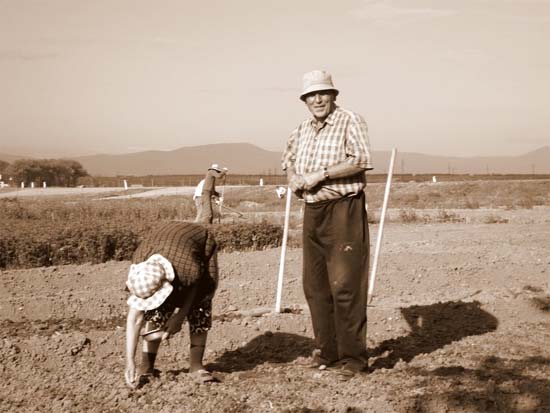
Caption: My host family in Armenia
My host family was adamant about keeping a proper house. Valia, taught me things like how to wash clothes by hand and how to shake out a carpet and how to clean out the wood burning stove. Rahim, her husband, taught me how to till soil by hand, look for grub worms that were a danger to the potatoes, how to quickly remove sunflower seeds from their pods, and how to train a cow or pig by hitting them with a stick.
I preferred to work in the garden. Rahim smiled for my willingness to do so. I ignored the blisters that formed on my hands and worked until they popped. Rahim insisted that I wear gloves, but I always refused. I never saw a villager wear gloves and I wanted to integrate with the village community as much as possible. A culture that has suffered so much and has overcome so many adversities, the least I could do was to bleed a little bit for my labor. “My hands will toughen up eventually,” I told him.
One afternoon in October, during the potato harvest, storm clouds blew in like dark smoke bellowing from a dragon’s nostrils. Behind them was the pink fire of lightning. Rahim and I had to work quickly; otherwise, the rain would have caused the potatoes to rot.
And the rain came and our hands dug into the thick mud. The thunder rolled and the lightning crashed and the clouds swallowed the light.
“Go in the house,” Rahim said. “I’ll finish.”
“No,” I retorted, the cold, goose pimpled rain and wind smacking me in the face, steam bellowing from my frozen lungs. I was like the sky itself, tough and ambitious. “I’m staying and helping. We’re almost finished.”
He didn’t argue. I stayed and helped him finish, mud caking our hands with every potato we pulled up, both of us wet and cold and dirty, yet satisfied and happy with the work we were doing.
After collecting all of the potatoes, we covered them with a tarp and went inside for dinner. The smell of borshch filled my nostrils as I opened the door. We went to the sink to wash up and then changed into some dry clothes. By the time we were finished, Valia had the table set and scooping warm soap into our bowls.
We ate in silence, an occasional slurp echoing through the room. The electricity was knocked out by the storm, too, so the only light we had was from a candle in the center of the table. It was like eating during a vigil. And mysteriously, a vigil is what it turned into.
After a long silence, Valia decided to speak about the Armenian genocide. The smells of dinner were replaced by emotion and unfathomable horror. All the physical pain I was experiencing from working all day in the garden—sore muscles, blistered hands—meant nothing anymore. Physical pain is much easier to heal. If you cut yourself, you put some ointment on it and it goes away, but emotional pain rises up like haunting spirits from the grave and relentlessly reminds you of how people can be so evil. And the evil seeps into your head and tries to eat all of the goodness and love inside of you. Emotional pain can heal, but it takes time. For many Armenians it has taken a lifetime.
“The Turkish government is corrupt and evil,” she said, her eyes filling with silent tears. They have always been that way. During the genocide, soldiers sliced open the bellies of expectant mothers and bashed children’s heads against stone walls. And today the government fills the world with rhetoric and lies. The government says the genocide didn’t happen and the world believes them?”
I didn’t have an answer. I tried to drown out the screams and anguish of the horrifying darkness as she explained her grief to me, but it was of no use. I could hear mothers and children scream as if I were there in the midst of it all. I could smell the sweat and tears, metal melting on skin, the taste of blood and fear. Pictures of the dead filled my head: women and children thrown about like candy wrappers, scattered across street corners and living rooms; fathers who would never see their children again; mothers who mourned their sons and husbands; Turkish children who were not taught the fragilities of human nature and advanced toward the sight of blood, then raged against the fear they saw, only to encourage more evil and more blood and violence.
I comforted her as best I could, said that I was sorry for all the suffering she and her people had experienced. Then, without saying another word, she got up and went to the kitchen, leaving me with my thoughts and escaping into her own world where I hoped she would one day find peace.
What has living in an Armenian village taught me? How will it influence the rest of my life?
Rural living has taught me much. It has taught me the simple things like how to till a garden and herd cows. It has taught me that life is not always easy and convenient—running out to the outhouse at six in the morning in the bitter cold is not fun at all. But most importantly, the village has taught me the importance of history and why it should always be remembered. History influences our lives and helps us to understand our past. It directs out future. It helps us understand who we are and where we are going.
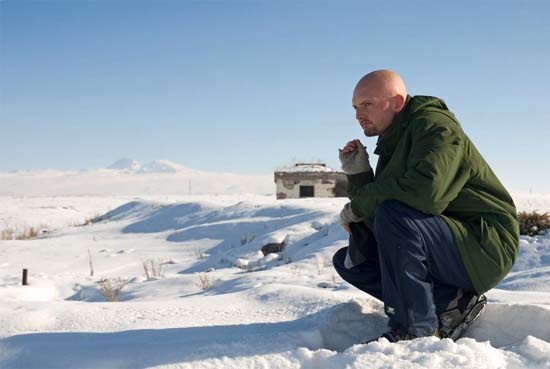
Caption: Winter, Getk, Armenia. Mt. Aragats is in the background. Photo courtesy of Lazlo Lieszkovszky
Thoughts on the Armenian genocide often race through my head. I am like a shadow on Ararat, always struggling to find the truths of history, to understand why Turkey will not admit to the atrocities that occurred almost a century ago. But most of all, I am searching for reconciliation so that the slaughter of innocents may never happen again. The Turkish government needs to put a ceasefire to their fiery rhetoric. They need to understand the crimes that their predecessors committed so long ago. Armenians need to heal their emotional past and start looking for a brighter future. They need to decide where they are going.
In short, Turkey and Armenia need to find reconciliation. They need to become friends.
Like the Armenians, I will never forget the genocide. Maybe one day everyone else will remember, too.






